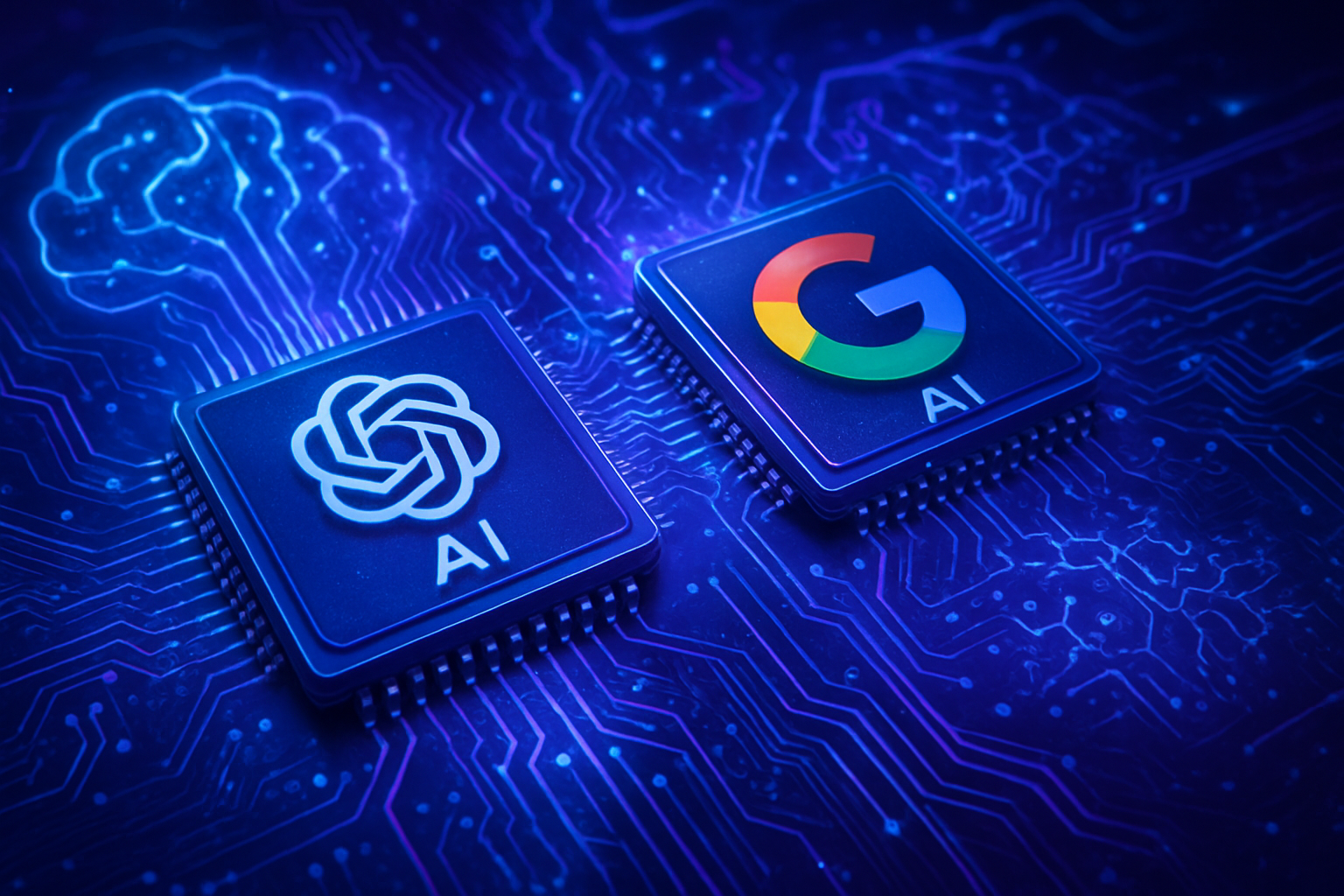OpenAI and Google are redefining technological evolution. The alliance of these two giants exacerbates innovation in the field of artificial intelligence. This collaboration promises revolutionary chips. It marks a major turning point, impacting the efficiency and power of AI systems. The ethical and economic stakes of this synergy are monumental. At the dawn of a new era, the implications of this cooperation emanate from industries to society as a whole.
OpenAI and Google: A Strategic Collaboration
OpenAI, a pioneer in the field of artificial intelligence, recently announced a collaboration with Google for the development of AI chips. This alliance aims to improve the processing capabilities of AI models while making these technologies more accessible. By joining forces, these two giants hope to transform the global technological landscape.
Objectives of the Collaboration
This cooperation focuses on the design of advanced chips specifically tailored for artificial intelligence. OpenAI is leveraging Google’s hardware expertise, while Google benefits from OpenAI’s algorithmic advancements. Together, they aim to design solutions that enable rapid and decentralized execution of deep learning algorithms.
The Stakes of Artificial Intelligence
The competition for leadership in AI is intensifying, especially between the United States and China. As this article points out, the increasing tensions related to semiconductors demand rapid innovations. Companies like OpenAI and Google must not only develop cutting-edge technologies but also anticipate future market needs.
The Role of Semiconductors
Semiconductors are the foundation of modern artificial intelligence systems. OpenAI and Google are seeking to develop chips that optimize performance while reducing costs. Companies like Nvidia and Foxconn have also partnered to build processing infrastructures that support this type of innovation.
Impact on the Technological Ecosystem
The collaboration between OpenAI and Google is expected to have significant repercussions on the technological ecosystem. On one hand, it could democratize access to advanced technologies, and on the other, it could strengthen the position of the United States in the AI sector. The design of AI-specific chips could stimulate innovation and drive productivity.
Future Perspectives
The prospects of this collaboration look promising. As the need for high-performance AI continues to grow, the triad of innovation, adoption, and regulation will be crucial. France, for instance, is also committing to this field, as evidenced by this article on the development of a massive data center dedicated to AI.
News Conclusion
With the rapid evolution of technologies and the need for robust infrastructure, the OpenAI-Google alliance appears well-positioned to play a key role in the global technological race. The way this collaboration unfolds and its repercussions on the semiconductor market are expected to shake the sector in the coming years.
Frequently Asked Questions
What is the nature of the collaboration between OpenAI and Google regarding artificial intelligence chips?
The collaboration between OpenAI and Google focuses on the development of optimized AI chips aimed at improving the performance and efficiency of artificial intelligence models.
What are the main objectives of this collaboration between OpenAI and Google?
The main objectives include improving the processing speed of AI algorithms and reducing the energy consumption of artificial intelligence systems.
What impact will this collaboration have on artificial intelligence technologies?
This collaboration is expected to enable significant advancements in the capabilities of AI models, particularly in terms of speed, efficiency, and data processing capacity.
Will the chips developed by this collaboration be accessible to the public?
Some chips are expected to be integrated into Google products, but public access will depend on strategic decisions made by the two companies.
How will this initiative affect researchers and developers working in AI?
It will allow researchers and developers to access more powerful technologies, thereby facilitating the development of more advanced artificial intelligence applications and models.
What are the main technological innovations expected from this collaboration?
Innovations include advancements in reducing latency, increasing processing capabilities, and improving energy efficiency in AI systems.
Will OpenAI and Google share their findings with other companies?
The modalities for sharing results have not yet been communicated, but it is likely that some results will be shared through publications and academic conferences.
Will this collaboration have an impact on ethical artificial intelligence?
This collaboration could foster a more ethical approach by developing technologies that minimize environmental impact while enhancing the transparency and accountability of AI systems.
What are the implications of this collaboration for the future of AI chips in the market?
The impact could be substantial, with advancements that could redefine the AI chip market, enabling more efficient and accessible solutions for various applications.






